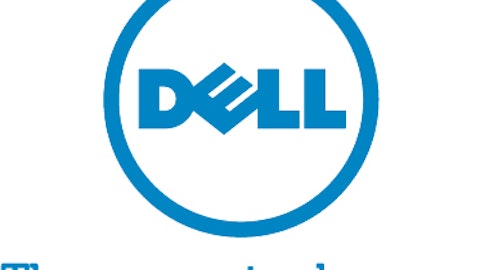For years, economists, policymakers, and financial analysts have warned that rock-bottom interest rates would have to start rising someday. So far, though, those long-awaited rate increases haven’t materialized. Now, major U.S. corporations have started ramping up their bets that rates will stay low for the foreseeable future by selling bonds with variable interest payments tied to prevailing rates. Will they be proven right, or will they eventually face the prospect of much higher financing costs down the road?

Unlike homeowners who sought out adjustable-rate mortgage financing as the only possible way to afford monthly payments, the companies that are betting on continued low rates aren’t desperate for financing. As an article in The Wall Street Journal last week noted, the list of companies having sold floating-rate notes includes Dow components International Business Machines Corp. (NYSE:IBM) and Caterpillar Inc. (NYSE:CAT).
More broadly, the proportion of floating-rate bonds as a percentage of all bonds issued more than quadrupled last month compared to 2012. Although they still represent less than one-tenth of total new-bond activity, investor demand has been high, suggesting future growth could be in the cards. Even the Treasury is getting involved, with a recent announcement that it planned to offer floating-rate bonds within the next year.
Why do companies like to float?
Corporate issuers routinely take advantage of trends in the bond market, and right now, the trend favors floating-rate bonds. No investor wants to buy a bond that locks in a low fixed rate for years down the road, and so investors are willing to pay a premium for bonds that provide an interest-kicker if rates start to rise.
When it comes to bond financing, success is often measured in hundredths of a percentage point — especially when you consider the billions of dollars in debt that many major corporations have. By using floating-rate bonds, companies have been able to get financing at current rates close to the now-infamous Libor benchmark, which is well below the fixed rates that borrowers can get even for relatively short maturities. The Coca-Cola Company (NYSE:KO) and The Walt Disney Company (NYSE:DIS) were even able to get floating-rate bonds priced below Libor, locking in very favorable spreads for the duration of the bond’s lifespan.
Do floating-rate bonds make sense?
For investors who use bank CDs as part of their investment strategy, the phenomenon of wanting to protect against rising rates is nothing new. For years, banks have offered rising-rate CDs that allow savers to increase their interest rates under certain circumstances. Rising-rate CDs entice customers to deposit money with banks even when current rates are low, in the hope that they’ll be able to boost their interest later. Yet often, between timing and the wording of provisions allowing the increases, such CDs never end up paying a higher rate.
The benefit of floating-rate bonds is that the interest rate on the bonds goes up automatically rather than requiring an affirmative decision from investors. As long as the benchmark rate that the bond uses actually moves in line with broader rate trends, investors can simply watch their interest payments get larger if rates rise.
Are floating-rate bonds a smart investment?
Individuals considering buying this type of bond need to understand that their institutional-investor counterparts often find floating-rate bonds appealing simply because they help hedge against a known risk. For such institutions, the price of getting rid of that risk is often of secondary importance, and so individuals have to be sensitive to whether they’re actually giving up expected returns by jumping onto the floating-rate bandwagon.
The biggest benefit, though, is that floating-rate bond funds likely won’t see the same capital losses that their traditional fixed-rate bond-fund colleagues will suffer when interest rates rise. Already, even with just modest rate increases recently, some fixed-rate bond funds have seen negative total returns so far in 2013.
Don’t sink
Floating-rate bonds are worth a closer look, but like many novel investment ideas, their results may fall short of their promise. Many investors will find that they’d be better off buying fixed-rate bonds to hold until maturity rather than accepting the uncertainty of floating-rate notes.
Tune in every Monday and Wednesday for Dan’s columns on retirement, investing, and personal finance. You can follow him on Twitter @DanCaplinger.
The article Why Corporate America Thinks Rates Will Never Rise originally appeared on Fool.com and is written by Dan Caplinger.
Fool contributor Dan Caplinger has no position in any stocks mentioned. The Motley Fool recommends Coca-Cola and Walt Disney (NYSE:DIS). The Motley Fool owns shares of IBM and Walt Disney.
Copyright © 1995 – 2013 The Motley Fool, LLC. All rights reserved. The Motley Fool has a disclosure policy.




